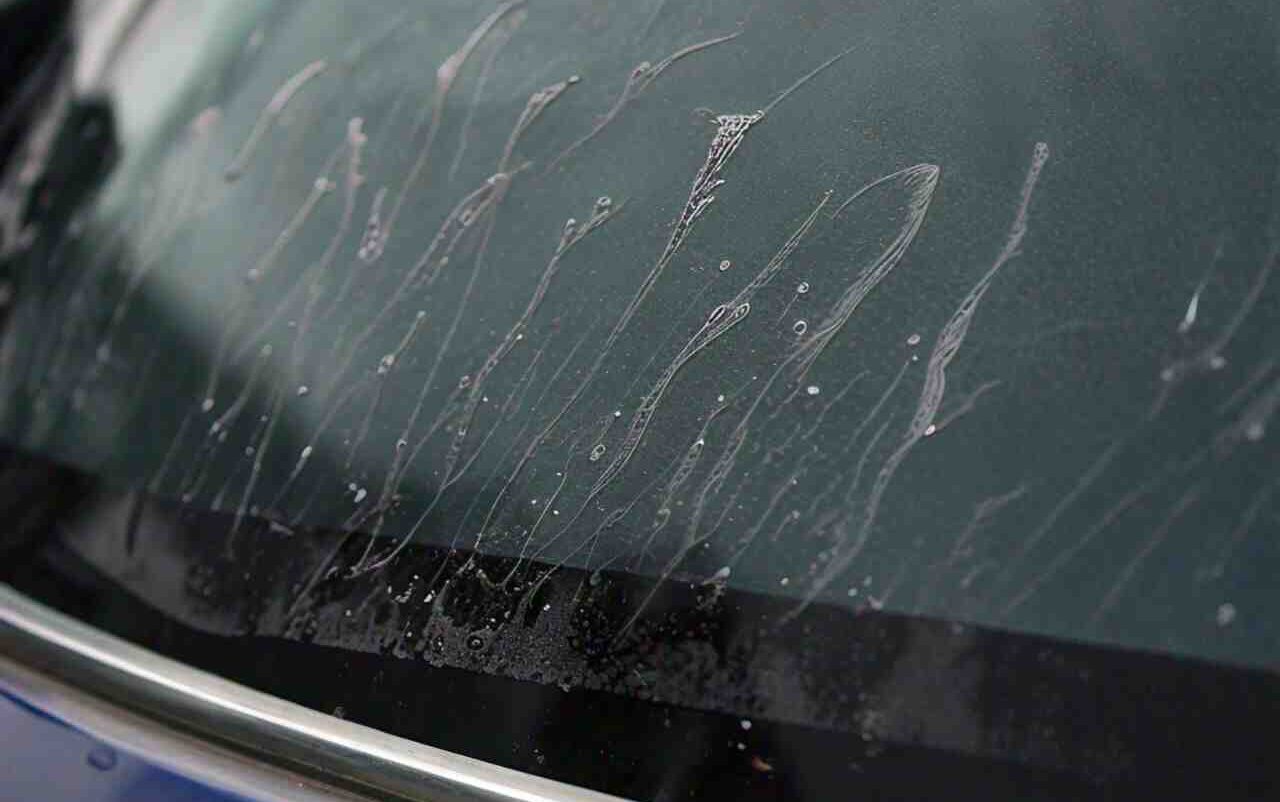Keeping car glass clean and clear is not only about appearances; it’s also essential for safe driving. Water stains are a widespread concern for vehicle owners. Water stains on car glass can be persistent, affecting visibility and creating a frustrating appearance on your car’s windows and windshield. In this comprehensive guide, we’ll walk through why water stains form, effective DIY and commercial solutions to remove them, and tips to prevent them from returning.
What Are Water Stains on Car Glass?
Water stains are cloudy or spotty areas left on glass surfaces when hard water evaporates. Hard water contains minerals like calcium, magnesium, and other deposits, which can settle on surfaces after the water dries. Over time, these mineral deposits build up and create water spots that are difficult to remove, especially if they have been left on the glass for an extended period.
Understanding Hard Water and Its Impact on Glass Surfaces
Hard water is notorious for leaving water spots on various surfaces, especially glass. When water with high mineral content evaporates, the dissolved minerals stay behind. On car glass, this creates a visible residue that, if left untreated, can permanently etch the surface, damaging its clarity. This is why it’s crucial to address these stains quickly.
Common Causes of Water Stains on Car Glass
Water stains can appear on car glass due to several factors. In most cases, it’s simply a matter of water drying on the surface without being wiped away.
Effects of Rainwater and Tap Water on Car Glass
While rainwater is usually clean, it can carry pollutants, dust, and minerals, especially in urban areas. When these rain droplets dry, they leave behind mineral deposits. Similarly, tap water often contains minerals that contribute to the formation of spots when left to dry on your car glass. The mineral deposits remaining after evaporation cause water stains.
Residual Minerals and Spot Formation
The calcium and magnesium in hard water bind to the glass, causing spots that grow more pronounced over time. These minerals can even etch into the glass, leading to irreversible damage if not removed promptly.
Why It’s Important to Remove Water Stains Quickly
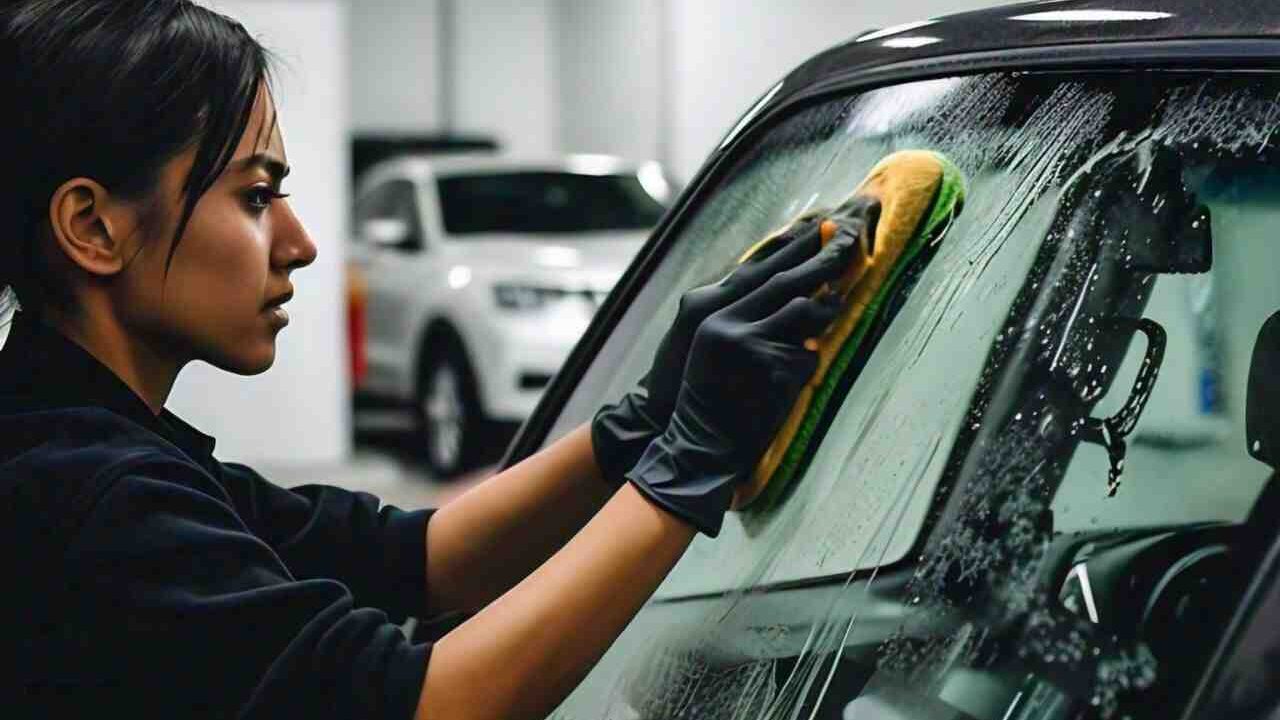
If left untreated, water stains can cause long-term damage to car glass. Let’s explore why removing these stains promptly is essential.
Long-Term Damage to Glass
Mineral deposits can erode the glass’s smooth surface, leaving behind microscopic grooves. These grooves increase glare, reduce visibility, and make it easier for dirt and grime to cling to the glass. Over time, this can lead to permanent damage that even the best cleaning methods won’t fix.
Impaired Visibility and Safety Risks
One of the primary functions of clear car glass is ensuring a driver’s visibility. Water stains on car glass obscure the driver’s view, particularly in strong sunlight or at night when oncoming lights cause glare. This can be a major safety concern, especially on windshields and side mirrors.
Simple Methods to Remove Water Stains on Car Glass
You don’t need to buy expensive tools to tackle water stains on car glass. Here are some easy DIY solutions and commercial methods that work well on even the most stubborn spots.
Method 1: Using a Water Spot Remover
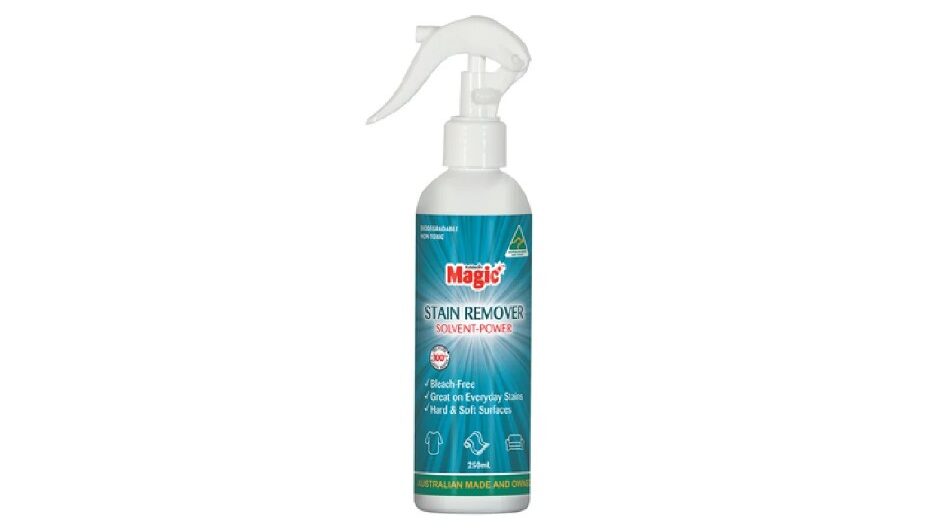
A water spot remover is a specialized solution designed to dissolve mineral deposits without damaging glass. Many of these removers contain mild acids or surfactants that break down the mineral stains, making it easier to wipe them away.
Step-by-Step Guide to Applying a Water Spot Remover
- Start with a clean surface by washing away any loose dirt.
- Apply the water spot remover to a microfiber cloth or directly to the glass as directed.
- Apply the solution to the stain and rub in a rotating, circular pattern
- Rinse with distilled water and dry thoroughly to prevent further spots.
Method 2: DIY Solution with IPA and Soft Water
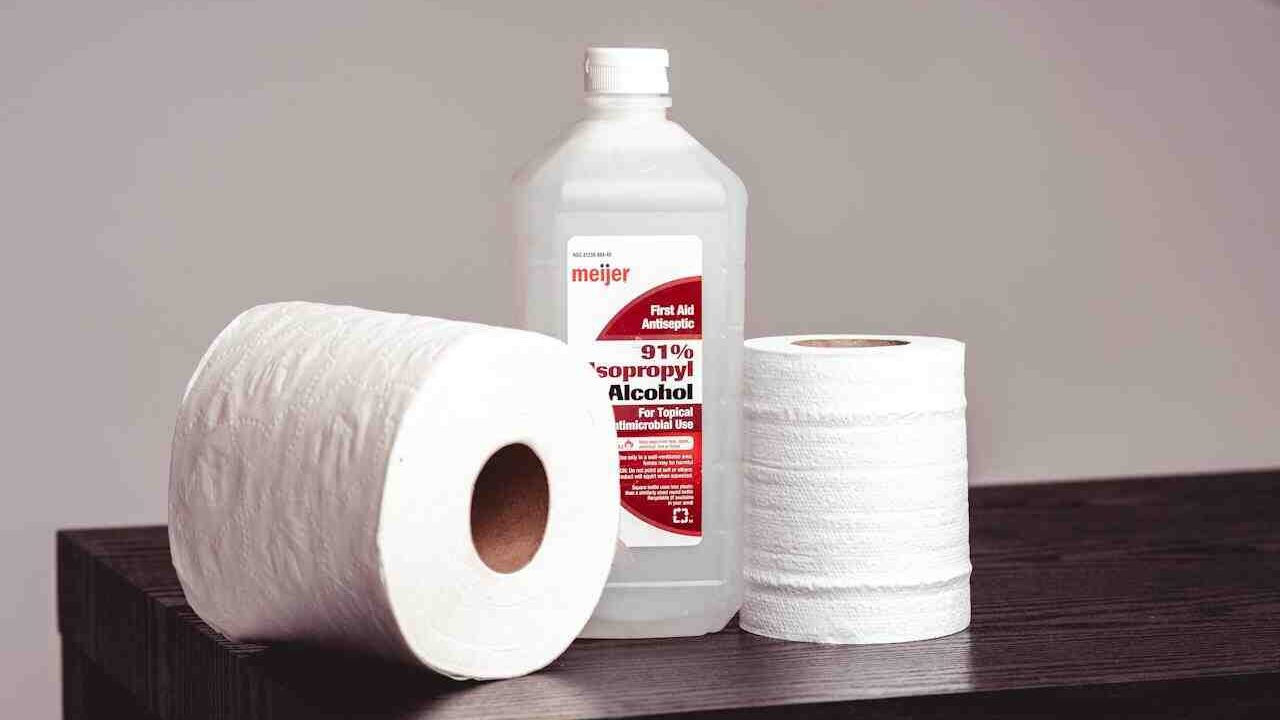
For a homemade approach, IPA in a 1:3 ratio with soft water is an effective solution. Isopropyl alcohol (IPA Rubbing Alcohol) is great for cutting through grime and works well with soft water to dissolve mineral deposits.
Preparing a 1:3 Ratio of IPA with Soft Water
- Mix 1 part IPA with 3 parts soft water in a spray bottle.
- Spray onto the stained areas and wipe with a microfiber cloth.
- Follow up by rinsing with distilled water to avoid additional spots.
Method 3: Vinegar and Water Solution
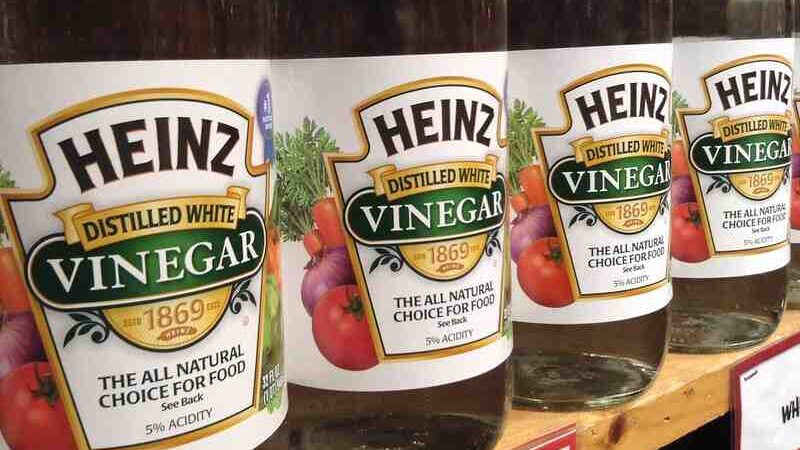
A tried-and-true method is using equal parts water and white distilled vinegar. The acidic nature of vinegar dissolves minerals, making it a great option for tackling water spots.
Using Equal Parts Water and White Distilled Vinegar
- Mix equal proportions of water and white distilled vinegar in a spray bottle.
- Spray the mixture onto the affected areas and allow it to sit for a few minutes.
- Wipe away with a clean cloth and rinse with distilled water to avoid leaving vinegar residue.
Method 4: Commercial Glass Cleaners
If DIY methods aren’t your preference, there are commercial glass cleaners that specifically target hard water stains. Be sure to choose a cleaner that doesn’t contain ammonia, which can be harsh on car glass.
Preventing Water Stains on Car Glass
Prevention is key when it comes to maintaining the clarity of your car glass. These proactive measures will help keep water stains at bay.
Importance of Using Distilled or Soft Water for Cleaning
One of the easiest ways to avoid water stains is to use distilled or soft water when cleaning your car glass. Unlike tap water, these options lack minerals that contribute to spot formation.
Regular Maintenance and Cleaning Tips
In addition to using the right type of water, regular maintenance is essential. Make it a habit to wipe down glass surfaces every week, especially after rainfall or a car wash, to remove any residual water before it dries.
Products to Avoid When Cleaning Car Glass
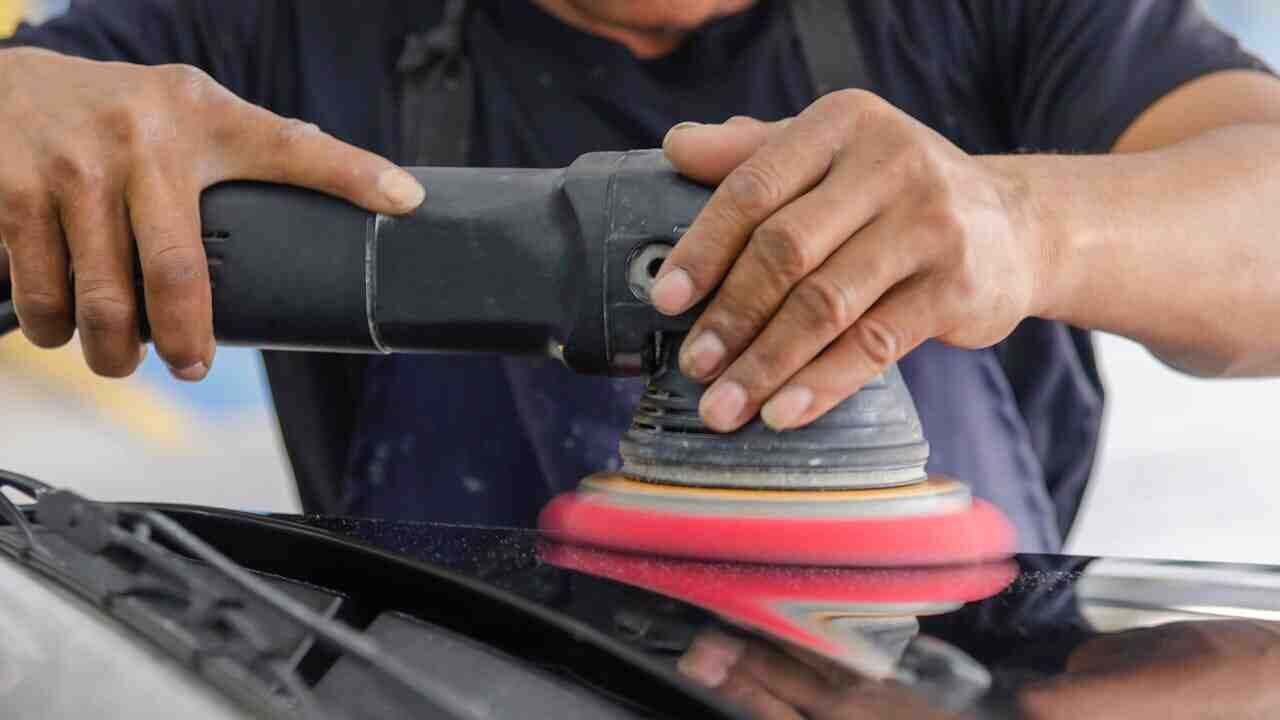
Some products may seem useful for cleaning glass but can end up causing more harm than good.
Why You Should Avoid Tap Water
Avoid using tap water on your car’s glass. Since tap water often contains minerals, it leaves residue that can turn into spots. Always opt for distilled water to ensure a streak-free finish.
Harmful Chemicals That Can Damage Glass
Certain household cleaners, particularly those with ammonia, can damage car glass. Ammonia leaves a residue that attracts dust and grime, ultimately making your car glass look worse. Instead, look for cleaners specifically formulated for auto glass.
Personal Experience with Water Stains on Car Glass
Over the years, I’ve had my fair share of struggles with water stains on car glass. Initially, I used tap water, not realizing it was causing more harm than good. The stains on my windshield seemed impossible to remove, and each attempt to clean only made it worse. Eventually, I switched to using IPA in a 1:3 ratio with soft water, and it was a game changer. Not only did it help eliminate existing stains, but it also made a noticeable difference in keeping new stains from forming. Through regular maintenance and using the right products, I’ve been able to keep my car glass clean, improving visibility and ensuring a safer driving experience but sometimes our car shakes while braking this thing can be real danger for driver.
Frequently Asked Questions (FAQs)
Q1. How to get water stains off car glass?
To remove water stains from car glass, use a solution of equal parts water and white distilled vinegar. Spray it on the stains, let it sit for a few minutes, then wipe with a microfiber cloth. Follow up by rinsing with distilled water to prevent further spots.
Q2. How to remove hard water stains from car paint?
Mix equal parts water and white vinegar, then gently apply it to the stained area with a soft cloth. Wash with water and finish with a dry microfiber cloth. Avoid using harsh scrubbing to protect the paint.
Q3. Can vinegar damage car glass?
When diluted with water, vinegar is generally safe for car glass and effective at removing water spots. However, always rinse with distilled water afterward to avoid any acidic residue that could attract dust or cause streaks.
Q4. How Often Should I Clean My Car’s Glass to Prevent Water Stains?
Regular cleaning, ideally once a week or after each wash, helps prevent mineral build-up.
Q5. Are There Any Special Products to Prevent Water Spots on Car Glass?
Yes, many products are designed to repel water from car glass, making it easier to prevent future stains.
Water stains on car glass don’t have to be a recurring issue. By understanding their cause, using the right cleaning techniques, and following a regular maintenance routine, you can keep your car glass looking spotless.
